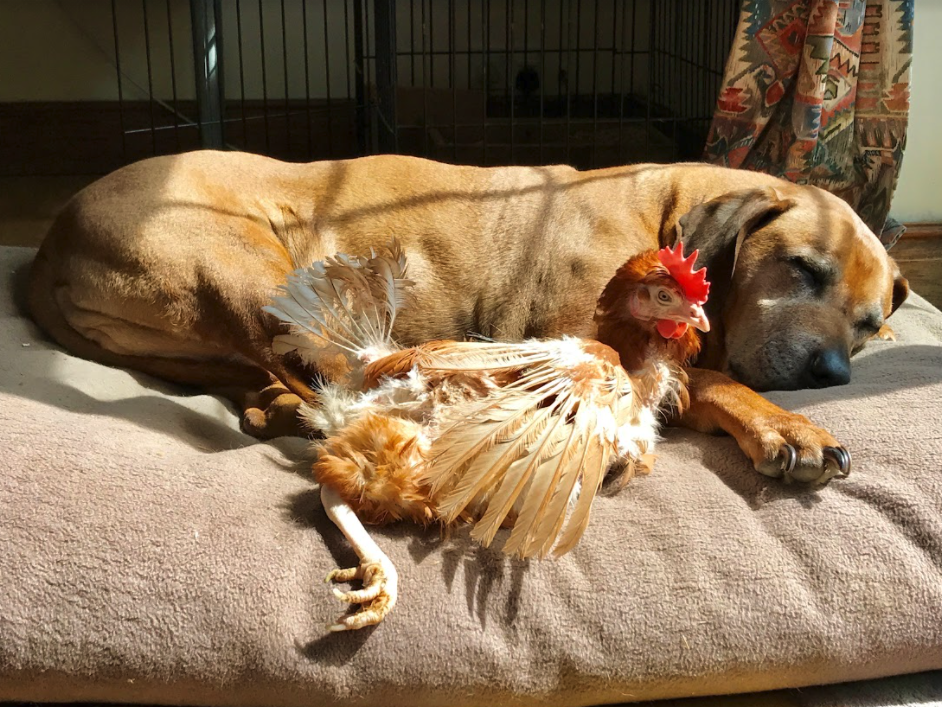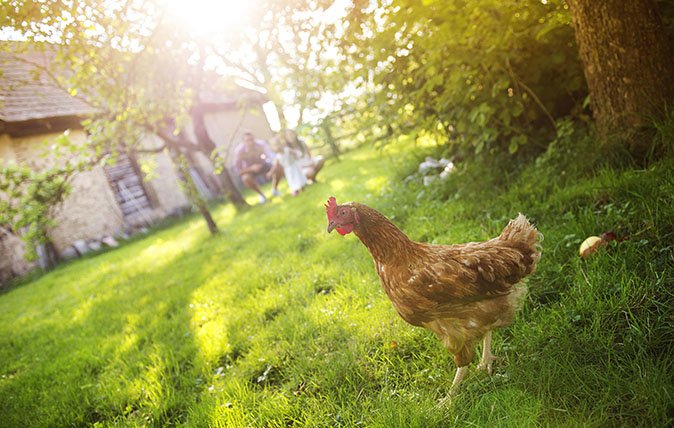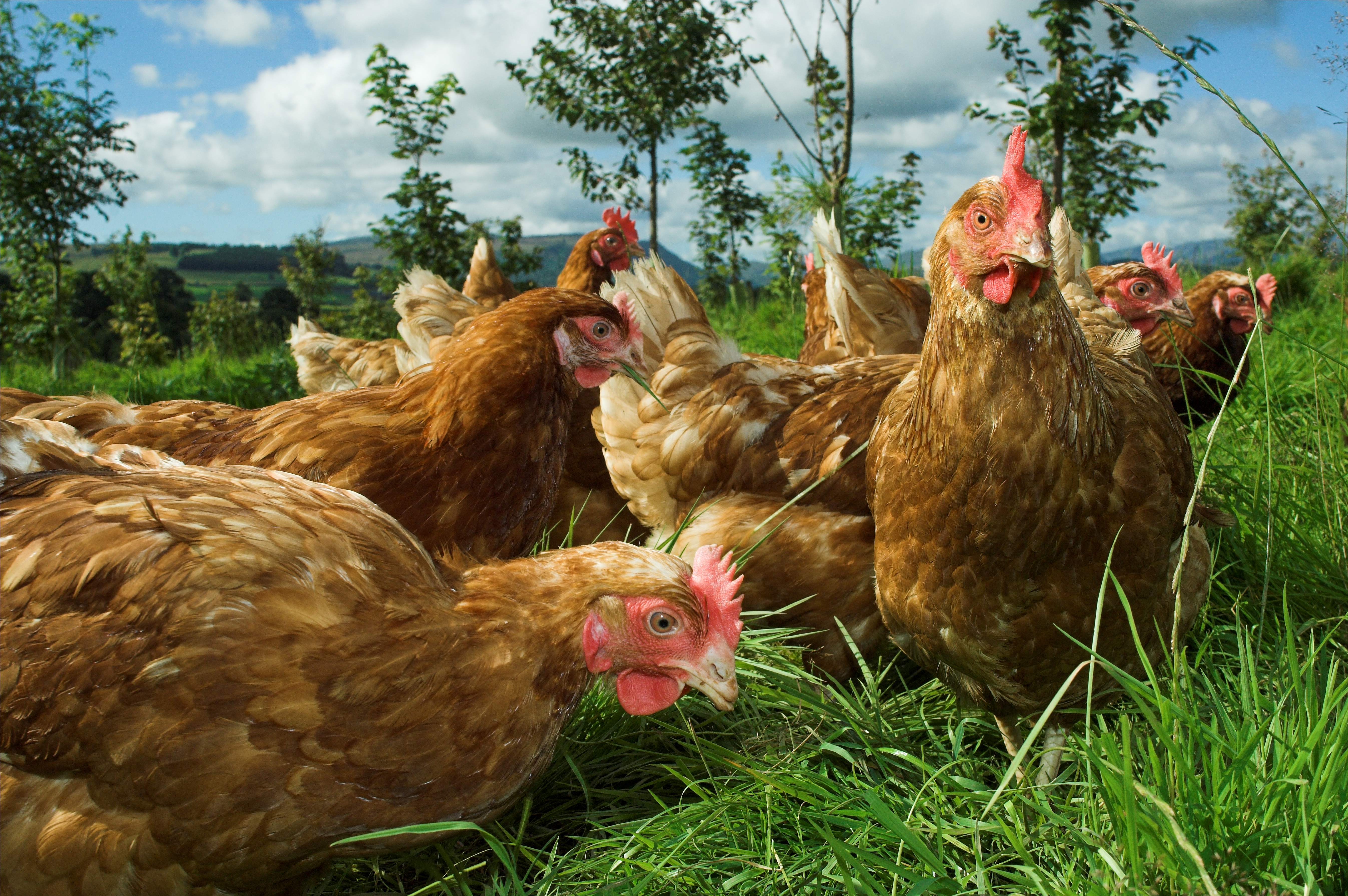How keeping chickens boomed in the pandemic — and the charity helping new keepers do it right
Chickens became the fourth most popular domestic pet in Britain over the past year and a half, and the British Hen Welfare Trust have been helping thousands of people. Annunciata Elwes reports.


Exquisite houses, the beauty of Nature, and how to get the most from your life, straight to your inbox.
You are now subscribed
Your newsletter sign-up was successful
Many charities and organisations have staggered over the past 18 months, but the British Hen Welfare Trust (BHWT) — which has rehomed more than 850,000 commercial chickens since 2005 — was able to use the change in circumstances to its advantage. The demand for chickens during lockdowns and furloughs skyrocketed, fuelled by fears over egg supply — in fact, domestic fowl is now the fourth most popular pet (1.2 million) after dogs, cats and indoor birds.
‘Last year, our waiting list went off the scale, with about 27,000 hens reserved, but unable to go to new homes due to lockdowns, not helped by a bout of avian flu in December,’ explains BHWT founder Jane Howorth.
Refusing to pause for breath during the hiatus, the charity focused on new initiatives, including the funding of six research grants into common ailments, plus several studies with academics from the likes of Cambridge and Winchester universities — necessary measures, as ‘the only research that anybody seemed able to find was research concluding that there wasn’t enough research,’ quips Mrs Howorth.
"There’s nothing out there for pet poultry so we feel we’re plugging a huge gap"
In the making is Well Beyond Welfare, a programme that places hens in prisons. ‘Hens have an amazing way of helping residents cope with anger management and improve wellbeing,’ says Mrs Howorth. ‘We hope to create a new role in the charity regarding the occupational benefits of keeping hens for mental health.’
In terms of hen health, the charity’s hen helpline still receives hundreds of calls and emails a month and, ‘because the hen-health pages on our website get hits from all over the world’, BHWT is working with the University of Nottingham to create a free online six-week course, fronted by television presenter Kate Humble, available globally and to launch next Easter, to educate vets and students on diagnosis and treatment. ‘We’re also creating a vet guide,’ adds Mrs Howorth. ‘There’s nothing out there for pet poultry so we feel we’re plugging a huge gap.’
Lastly, the BHWT has gone international. A French branch in association with charity Champs Libres aux Poules has just celebrated its first year, with 10,000 hens saved from slaughter, and the BHWT team is supporting a pro-free-range campaign in Taiwan, where 43 million hens are in battery cages. ‘We’ve added the word worldwide into our charitable objectives,’ explains Mrs Howorth. ‘We don’t mind where the hen is, if she needs our help, we will try and give it.’
Visit www.bhwt.org.uk to adopt or donate a chicken.
Exquisite houses, the beauty of Nature, and how to get the most from your life, straight to your inbox.

Credit: Alamy Stock Photo
Jason Goodwin: 'Twice I’ve given chase to a fox with a bird in its jaws in broad daylight and won the bird back'
Our spectator columnist muses about the futility of bird ownership, given the large number of predators and their uncanny ability

The secret life of chickens: It turns out the humble pecker is something of an egghead
Assumed to be the lowest in the avian-intelligence pecking order, chickens are, in fact, more like feathered imitators of Sherlock

Credit: Rex/Shutterstock
The house which inspired The Darling Buds of May is on the open market for the first time in almost 90 years
The house which inspired H.E. Bates to write his most famous works – and which became world famous as the setting
Annunciata is director of contemporary art gallery TIN MAN ART and an award-winning journalist specialising in art, culture and property. Previously, she was Country Life’s News & Property Editor. Before that, she worked at The Sunday Times Travel Magazine, researched for a historical biographer and co-founded a literary, art and music festival in Oxfordshire. Lancashire-born, she lives in Hampshire with a husband, two daughters and a mischievous pug.
